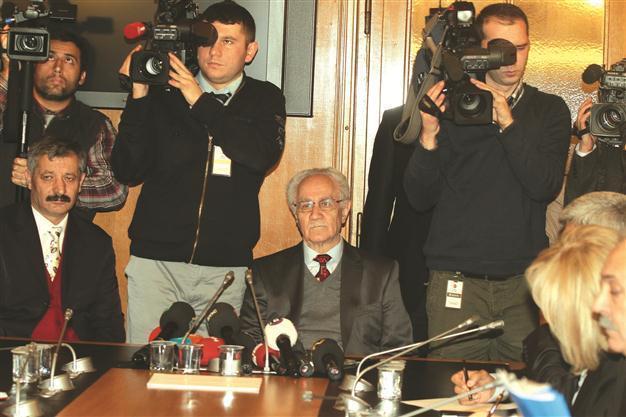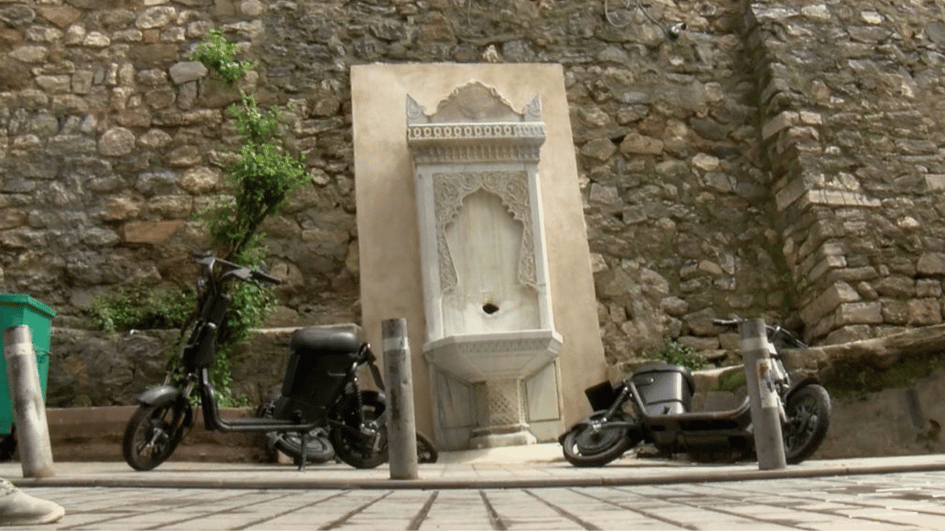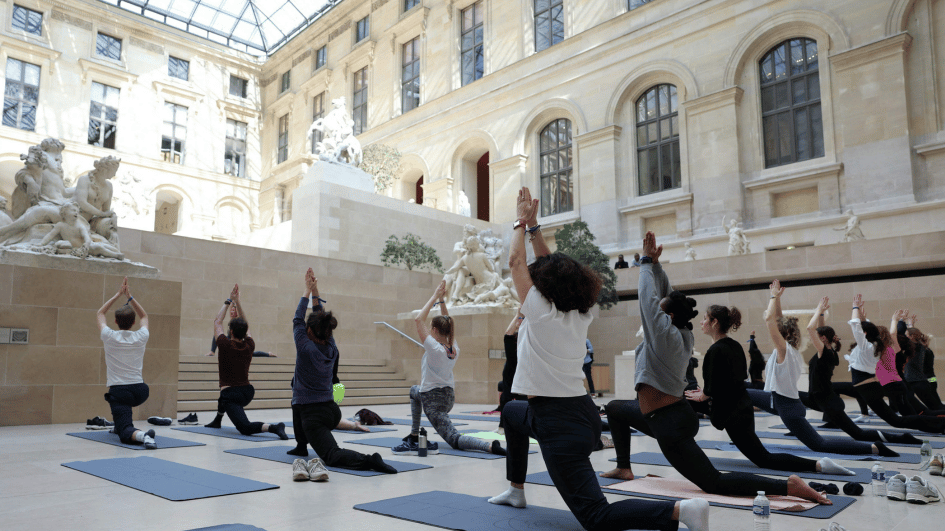Kurdish intellectual slams PKK, favors federation
WASHINGTON - Agence France-Presse

Prominent Kurdish writer Kemal Burkay (C) speaks at a meeting of Parliament’s Human Rights Sub-Commission. DAILY NEWS photo, Selahattin SÖNMEZ
Renowned Kurdish writer Kemal Burkay yesterday denounced the outlawed Kurdistan Workers’ Party (PKK) for suppressing dissenting opinion among Kurds, and argued that a federation could be a solution to the Kurdish conflict.Burkay, who returned from self-exile last year, was speaking at Parliament’s Human Rights Sub-Commission, which has been tasked with collecting input on possible ways to resolve the Kurdish issue. He lent support to the government’s “Kurdish opening,” but disapproved of its hardening policy on the issue. “I want the arms to be silenced. I don’t believe the state can get rid of this problem through oppression,” he said.
Burkay also stressed that the majority of Kurds wished to remain as part of Turkey, but argued that they should be granted a degree of self-rule. “We could discuss whether the solution should be a federation or extensive autonomy,” he said.
Uncovering the truth behind bloodshed and abuses in the southeast requires shedding light not only on the deeds of rogue elements of the state but also “the PKK murders of Kurdish intellectuals,” Burkay said. “The PKK does not allow democracy within itself. The Kurdish movement needs to have different colors. The Kurdish movement is not made solely of the PKK,” he added.
Burkay claimed the PKK was a creation of the Turkish state, which had at the time hoped to divide and weaken Kurdish movements. Jailed PKK leader Abdullah Öcalan fell under the influence of military officials linked to the shadowy Ergenekon network in the years after his capture in 1999, he argued. He also alleged that some 2,000 PKK militants had crossed from Iraq to Syria to support Syrian President Bashar al-Assad.
A robust supporter of non-violence, Burkay founded the Socialist Party of Turkish Kurdistan in 1974. He fled in March 1980, before the military coup that took place in September, and was granted political asylum in Sweden. He returned to Turkey last July, following an appeal by Prime Minister Recep Tayyip Erdoğan on Kurdish exiles.
















